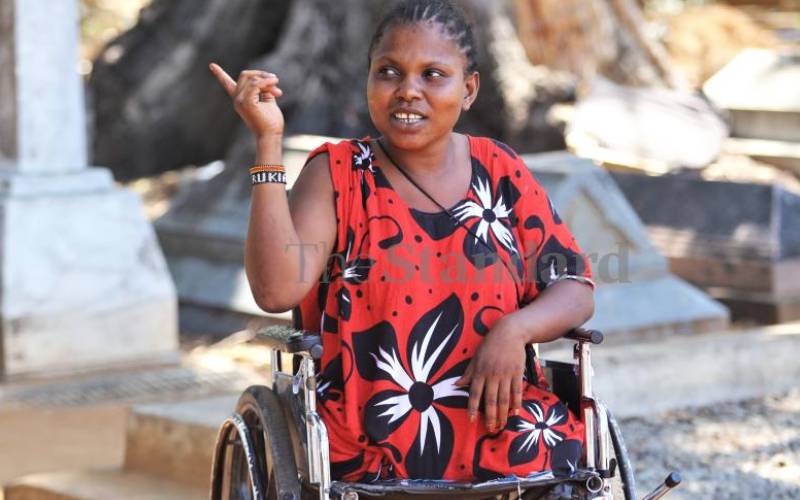×
The Standard e-Paper
Fearless, Trusted News

Irene Amukuma Aisha. [Kelvin Karani, Standard]
A 34-year-old double amputee, Irene Amukuma Aisha alias Mkavita, recalls the events of February 3, 2017, like they happened a few hours ago.